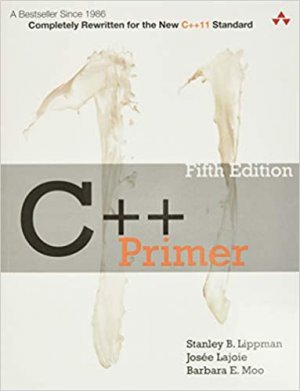
C++ Primer
- by Stanley B.Lippman, Josee Lajoie, Barbara E.Moo
- Edition: 5th Edition
- ISBN13: 978-0-321-71411-4
- ISBN10: 0 -321-71411-3
-
591

Similar Books
-
No books found
total questions: 591

Questions
591

Views

Best Answers
299

Points
5
add reason


